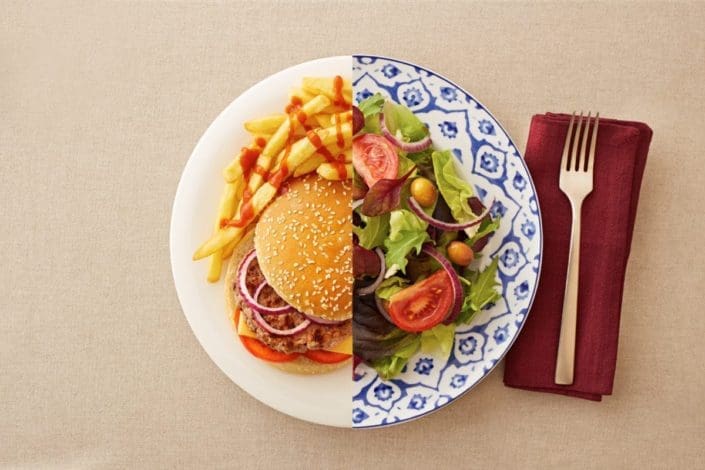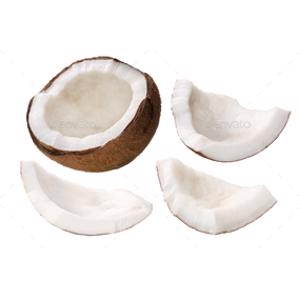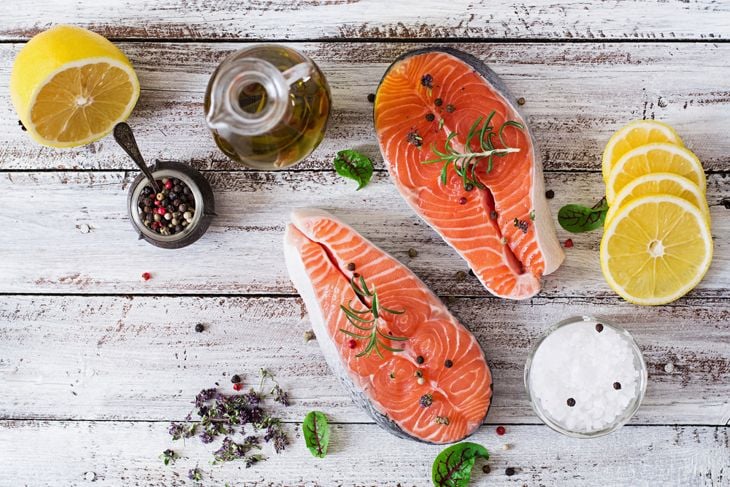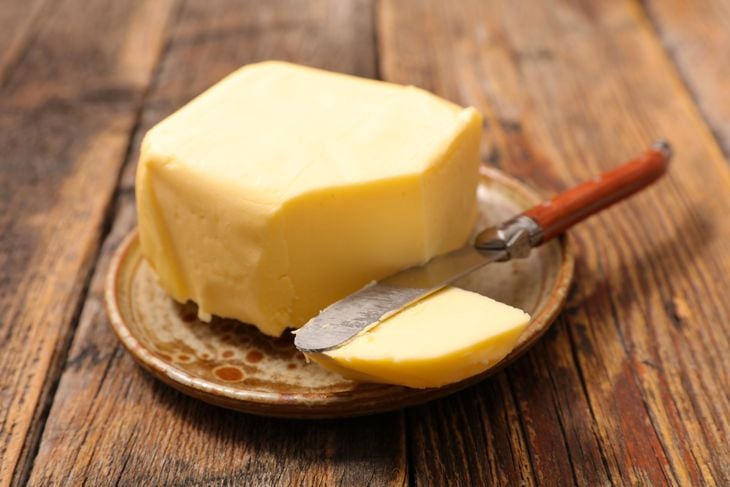Side Effects Of High Protein Low Carb Diets
Demonized as the button-busting devil, carbs are often seen as responsible for out-of-control weight gain. Therefore, some people have cut out carbs entirely in an effort to shed a few. The problem? Carbohydrates—especially healthy complex carbs—are an essential part of a well-balanced diet.
As one of your body's macronutrients, carbs are important for energy, brain function, and yes, even weight loss. The problem is this: Not only are people miserable when they go on low-carb diets (due to a lack of energy), but they're also more likely to gain weight.
Sure, giving up carbs can help you drop pounds in the short term. But overall, it's not a healthy or sustainable way to lose weight and keep it off. We talked to dietitian Jim White, RD, ACSM, and owner of Jim White Fitness and Nutrition Studios to find out why some people actually gain weight when they go on low-carb diets. Read on, and for more on how to eat healthy, don't miss 15 Underrated Weight Loss Tips That Actually Work.
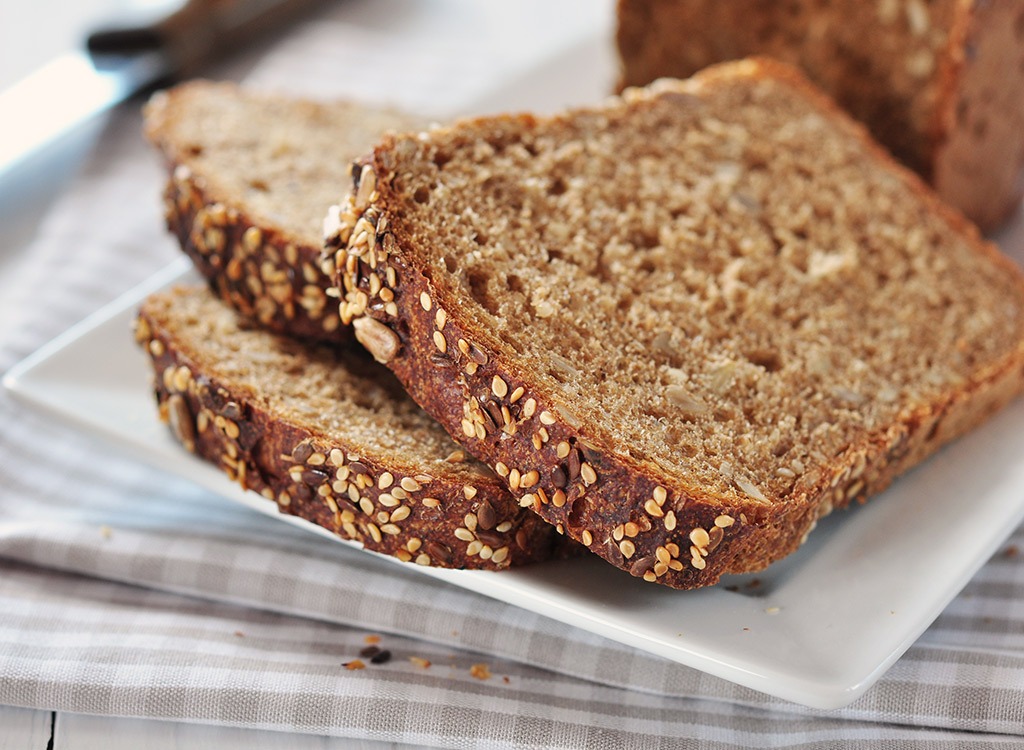
Fiber is an important nutrient that helps your digestive system, keeps you feeling fuller longer, and can ultimately help you lose weight. The Institute of Medicine recommends women get around 25 grams of fiber per day while men need 38 grams. Since fiber is found in a lot of whole-grain foods, such as whole-wheat bread, oatmeal, and brown rice, cutting out carbs will mean missing out on this valuable nutrient.
A study published in the Annals of Internal Medicine found that people who increased their fiber intake to 30 grams a day and made no other dietary or lifestyle changes lost just as much weight as participants who cut calories. Fiber also contains important B vitamins and can help lower cholesterol — all important reasons why carbs shouldn't be eliminated from your diet.
RELATED: Sign up for our newsletter to get daily recipes and food news in your inbox!
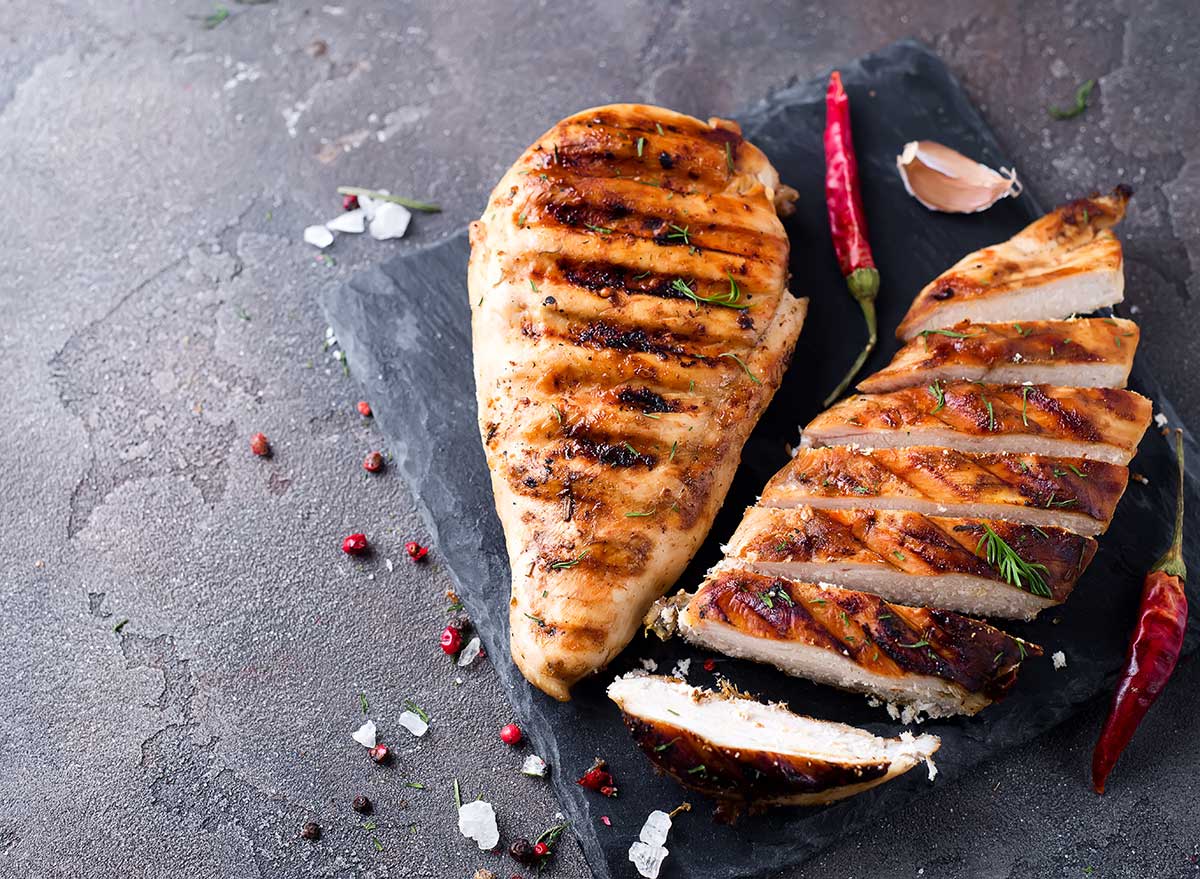
Getting enough protein in your diet can help you lose weight, and it's an important macronutrient that will help you build lean, fat-burning muscle mass and keep you full. But when people cut out carbs, that leaves only two macronutrients: Protein and fat. And as good as protein is for you, it's not a free-for-all.
"People think, 'I can eat as much protein as I want.' [But] protein still has calories. In fact, one gram [of protein] has four calories, so I see what people do is they lower their carbs and then they increase their fat and their protein to high amounts," says White. This means people are taking in way more calories than they intend to. For weight loss, men should shoot for 56 grams a day, while women need around 46 grams. For more, see 7 Ways Eating Too Much Protein Can Harm Your Health.
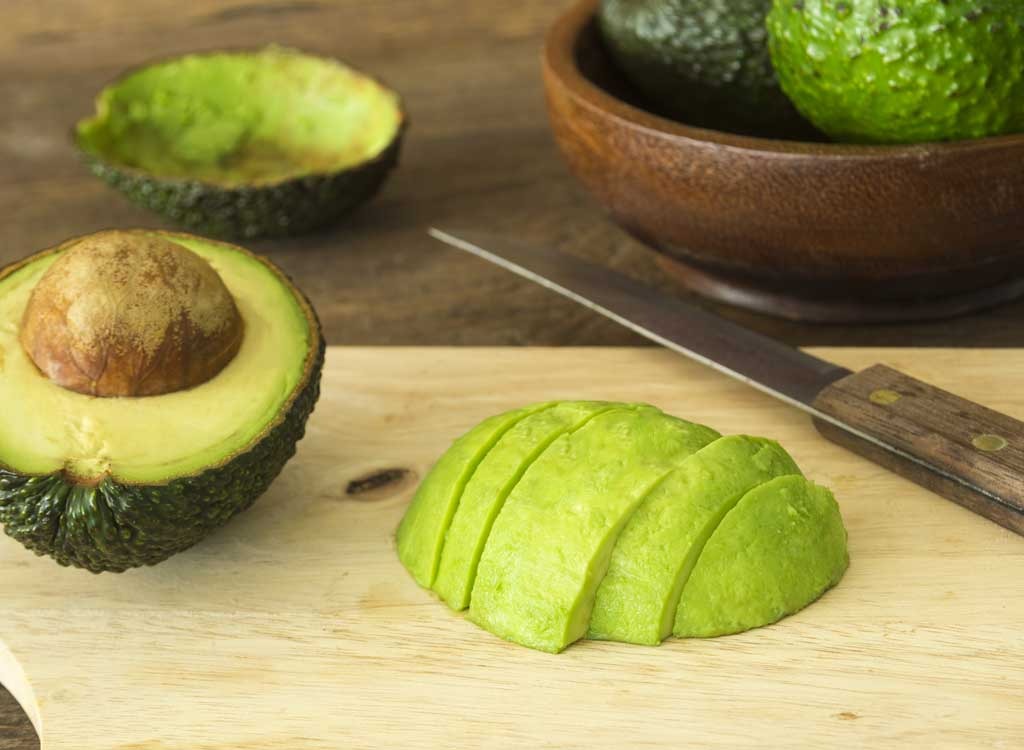
Same as overdoing it on protein, some people may eat way too much fat when they are giving up carbs. Sure, healthy fats such as omega-3s are anti-inflammatory and help you feel satiated, but it is possible to have too much of a good thing.
"Fat has double the amount of calories as carbs do," White says. "I think how [people] can gain weight in that sense is they overeat on the other macronutrients, causing them to gain weight. They over-consume calories." Although healthy fats aren't something you should be afraid of, you should try not to go over the recommended 60 grams a day.

When your body goes without carbs for too long, it can start to affect your blood sugar levels. When you eat food with carbohydrates, your body breaks the digestible carbs down for energy. This causes your blood sugar levels to rise and your pancreas to produce insulin, a hormone that helps your cells absorb blood sugar to use for energy.
When your blood sugar is low, however, you can start to feel extra hungry and crave high-sugar junk foods so your body can replenish its energy source. Keep your blood sugar stable by combining a complex carbohydrate with a protein and a little healthy fat (think: Ezekiel bread with peanut butter), and you'll be sure to stick to healthy snacks instead of an all-out binge.
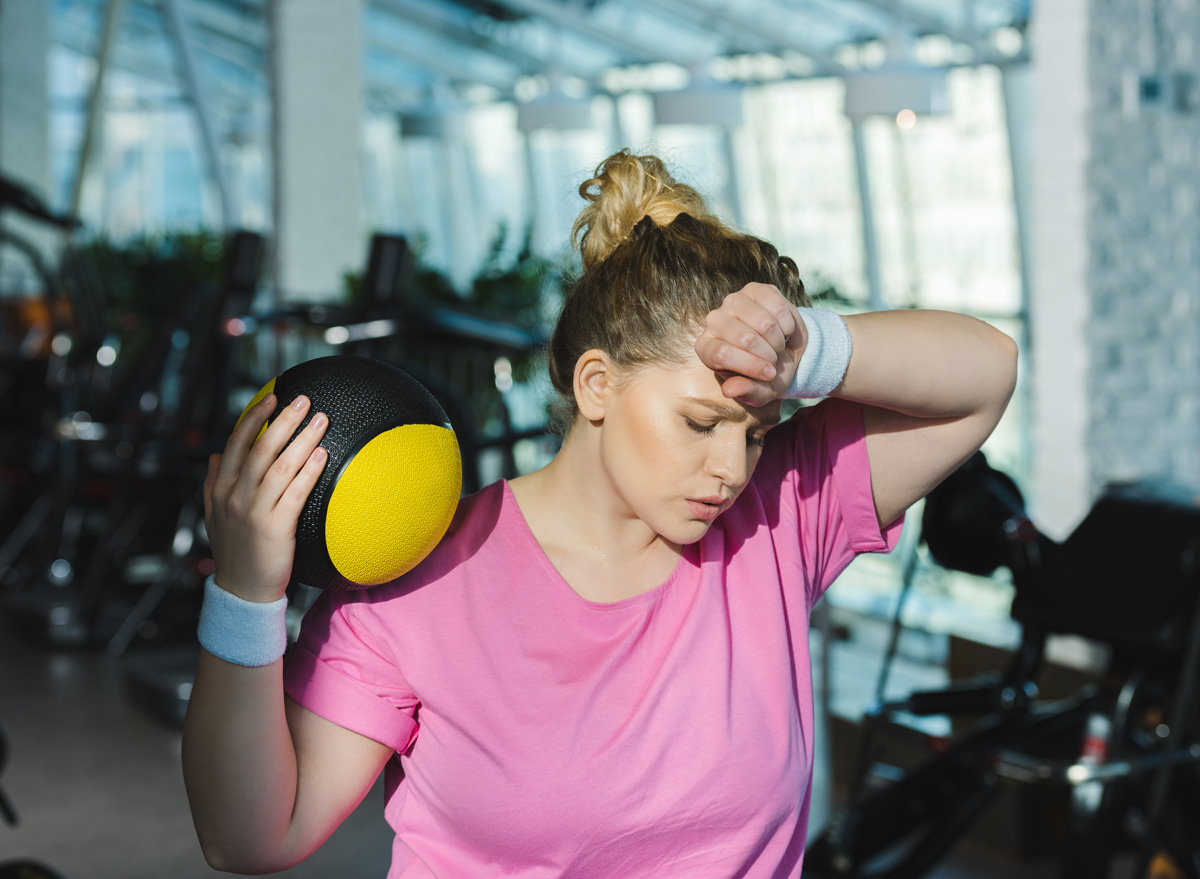
Did you know eating healthy plays more of a role in weight loss than exercise does? According to a Frontiers in Physiology study, exercise will burn off between 10 and 30 percent of your total caloric intake. Meanwhile, food accounts for 100 percent of our total energy intake; hence, having power over your diet is more influential than your fitness routine. That being said, exercise is important for heart health, longevity, and can help accelerate your weight-loss efforts. The problem when you give up carbs, however, is that you have no energy to hit the gym. Because carbs are your body's preferred source of energy, when they're gone, so are your energy levels.
White says people who give up carbs or severely carb restrict experience low energy. "A lot of times you even skip workouts or you don't give enough intensity to see a good result," he says. If you can't muster up enough energy to make it to the gym and end up sleeping in rather than working out, that will start to impact your waistline.

Your body first feeds off of carbs for energy. They're so important for energy, in fact, that 90 percent of your brain's fuel comes from carbs, White says. So when you cut them out, it affects your mood. Some people might feel depressed and like they want to sleep all the time. Others might get super hungry and angry ("hangry,") which prompts them to lose self-control around food and eat everything in sight. In general, eating a diet rich in whole grains combined with lean protein and healthy fats will help stabilize your mood and ward off hunger.
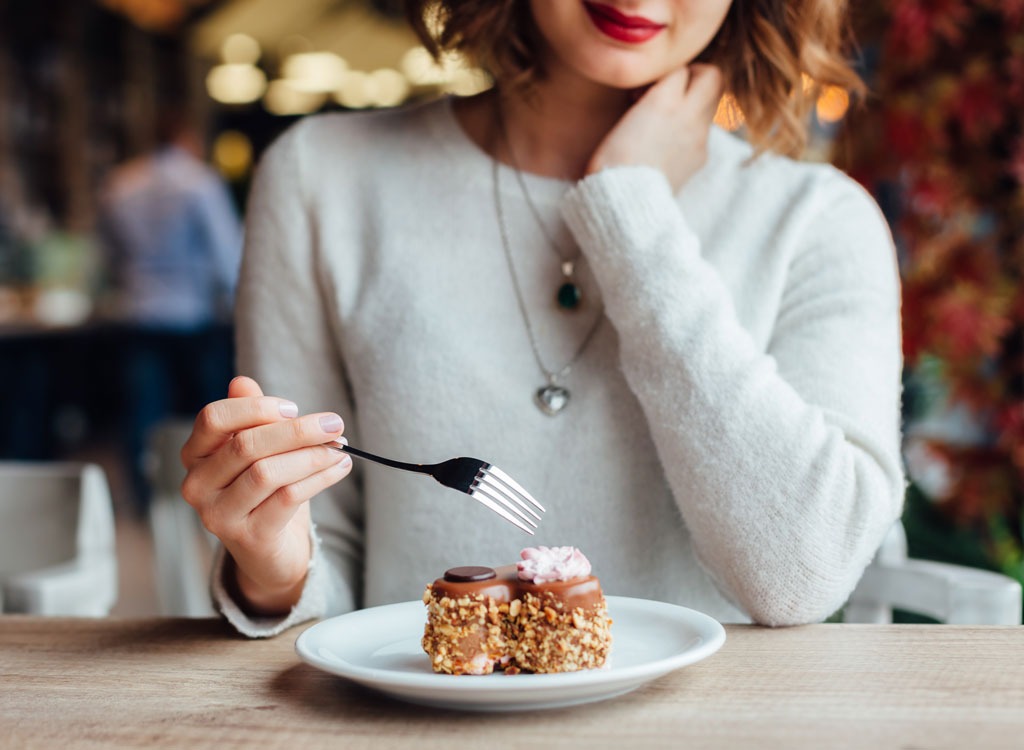
Perhaps the biggest problem with cutting out carbs entirely on a low-carb diet is that it's not sustainable in the long run. White says people can lose weight on a no-carb diet, but it's usually temporary.
"Each gram of carb holds onto about one gram of water, so when we start giving up carbs from the diet, we can tend to lose a water weight," White explains. The problem is, people think they're actually losing body fat when they're not. Once people start to eat carbs again, White says, they gain all that weight back. Plus, with the moodiness and lack of energy that comes from eliminating this important macronutrient group, people who are giving up carbs completely feel miserable most of the time. That's no way to live.
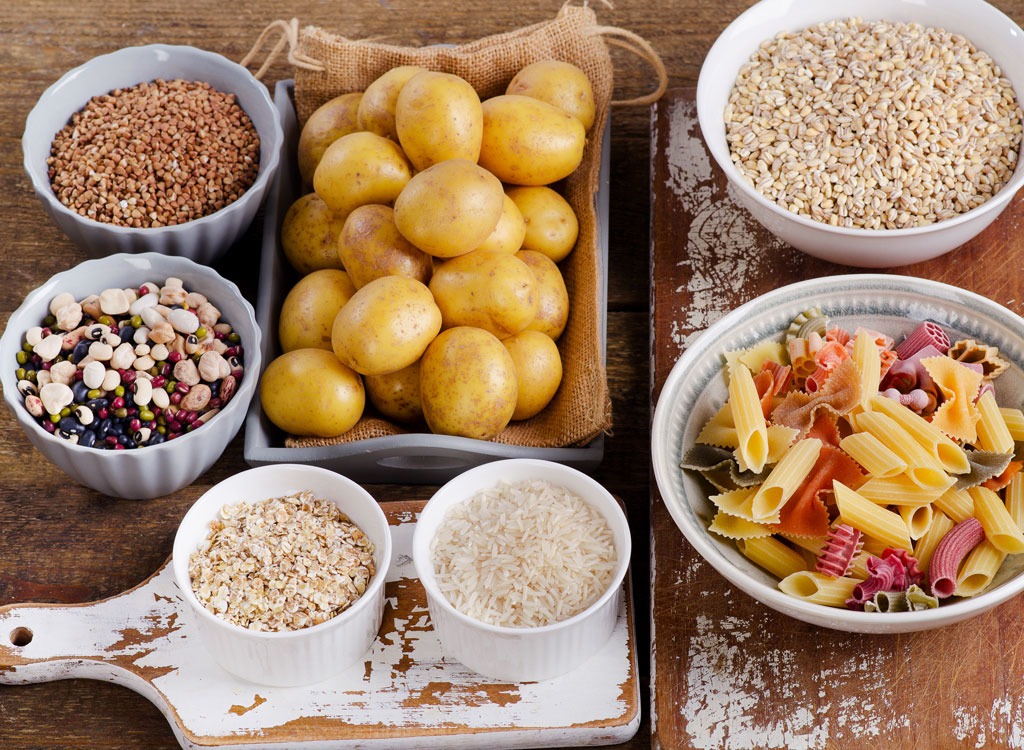
The reason why giving up carbs can be so effective for weight loss is because people tend to eat the wrong types of carbs to begin with. Foods like refined carbohydrates (white bread, white rice, white pasta, sugar, etc.) spike your blood sugar more than the healthier complex carbs that come from whole grains and fruit. White says sticking to portioned servings of those healthy complex carbohydrates is key; depending on your level of activity, he recommends your diet should be anywhere from 40 percent to 65 percent carbohydrates.
"I always recommend for men trying to stick around a cup of cooked starch per serving and women around a half a cup starch per serving," he says. If you do feel like you ate too many carbs for breakfast and lunch, then it's fine to skip them for dinner. But for overall weight loss (and to keep your sanity!), you're better off including carbs as part of a healthy diet. Read more: 24 Best Healthy Carbs To Eat For Weight Loss
Side Effects Of High Protein Low Carb Diets
Source: https://www.eatthis.com/side-effects-low-carb-diet/






